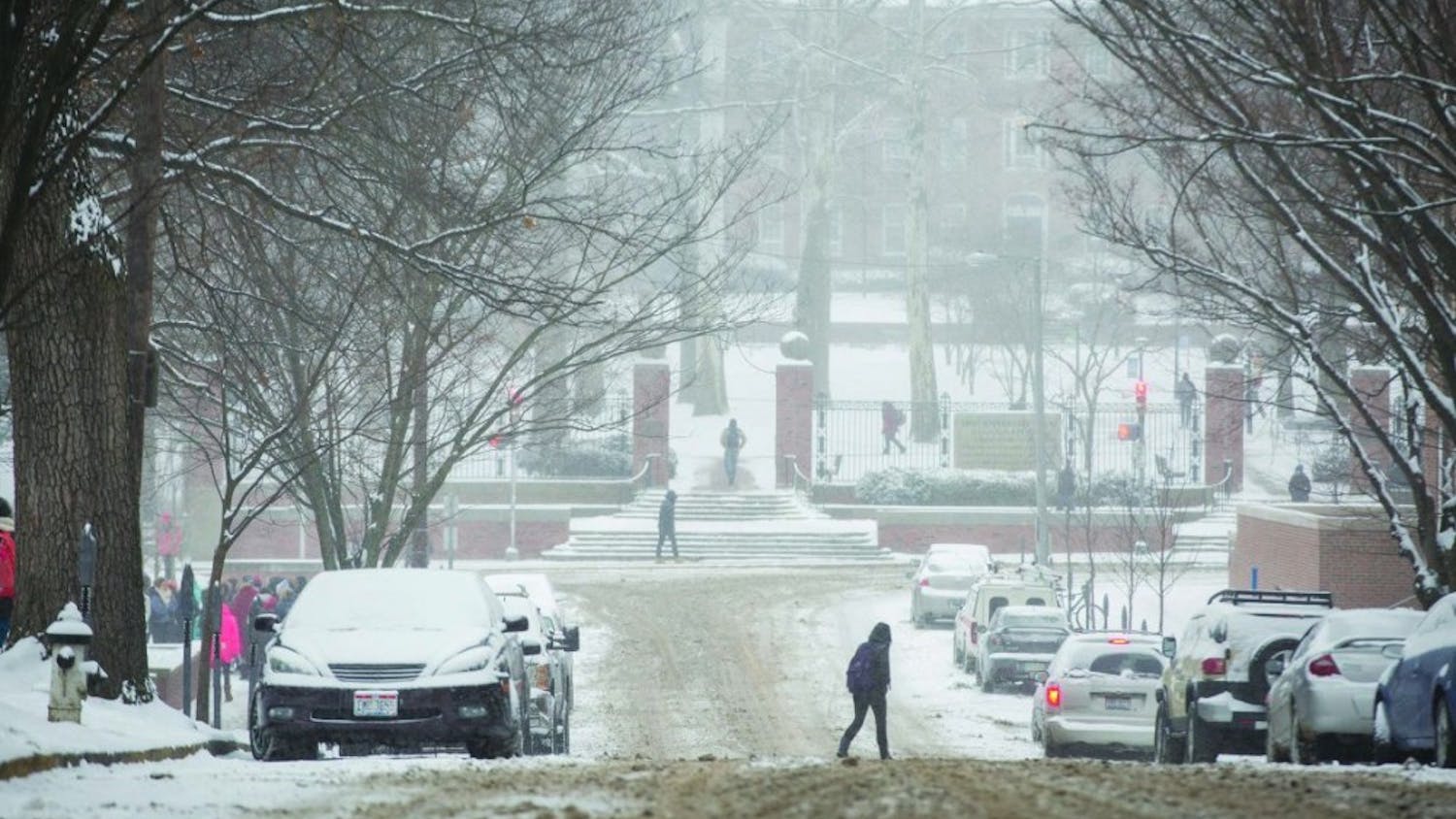With the fluctuating weather temperatures in Athens, there's no denying the dramatic effects it has on plants, animals and community members.
Ryan Fogt, professor of meteorology, acknowledged the wavering temperature changes happening around the world, and he said the climate is only going to get more extreme and intense in the future.
“These fluctuations are weather, but the fact that we had four 70 degree days since February 1 is part of a climate signal of this prolonged warming trend,” Fogt said.
Fogt also said it is imperative people understand the distinction between weather and climate. Weather is the process of daily environmental change, and climate is a long-term, gradual environmental change, Fogt said.
“(People are) making a lot of important decisions on things based on weather, when ultimately there's this background part called climate that's changing,” Fogt said.
Viorel Popescu, associate professor of biological sciences, said budding, flowering and animals coming from hibernation too soon are also occurring due to the warming climate.
“Flowers and trees are budding weeks (or) months earlier, relative to 50 or 100 years ago,” Popescu said.
Popescu said there is not much anyone can do to help plants and animals from coming out of hibernation or blooming. Some people are trying to replace plants and animals in environments that would be more suitable for them in the future, however, that is causing another problem by disrupting ecosystems, Popescu said.
“You basically produce an invasive species by trying to save (a species but) you're kind of messing up the environment and the place where you bring it in,” Popescu said.
However, it’s difficult to be sustainable when the government doesn’t implement any incentives to make a change, Popescu said.
Fogt also is responsible for developing the climate and sustainability ambassadors. The ambassadors’ focus is to contribute by increasing participation and hosting events to bring awareness and help combat climate change in Athens and Southeast Ohio.
Ridge Cook, a senior studying field ecology and an ambassador, said the constant changing of winter months’ conditions will jeopardize the blooming of certain plants and put animals at more risk.
“I think that's more of a danger in these natural ecosystems where we have plants that are threatened that maybe won't be able to flower and then go to fruit and then spread their seeds for the next year because they may flower and then die from a frost,” Cook said.
However, if community members are more mindful of consumption this can help climate change, Cook said. This is something that will benefit people in the long run, Cook said.
Another ambassador, Kate Harmon, a junior studying environmental studies, said as the climate changes, it can be difficult for farmers to navigate what crops to grow and where to grow them.
“If locally we’re not supplying as much as we used to be able to or the crops are different, and that changes what we're eating then that might drive us to import more produce from other places,” Harmon said. “That's a lot of emissions from transportation, and you're not relying on what's local.”
Harmon said she hopes to see the university come together to reduce its emissions. She said the Climate Action Plan implemented has certain goals for the university, but actually achieving those goals is what matters.
Considering the many affected groups due to the warming of the climate, Fogt, nonetheless, said this problem is bigger than any individual can combat, but it is a problem for corporations and the federal government to handle.
Fogt said the first step is ensuring people of all ages are made accurately aware of the issues concerning climate change. From there, hopefully, that initiates a further conversation about environmental changes, Fogt said.
“We’re seeing record highs being set much more often across the U.S. than record lows, providing (people) with that information to force themselves to zoom out and not think about what each day-to-day is like but the bigger picture and the longer term picture that's hard, but I think that's a really important distinction that needs to be met for people to start to be more concerned about climate change,” Fogt said.






